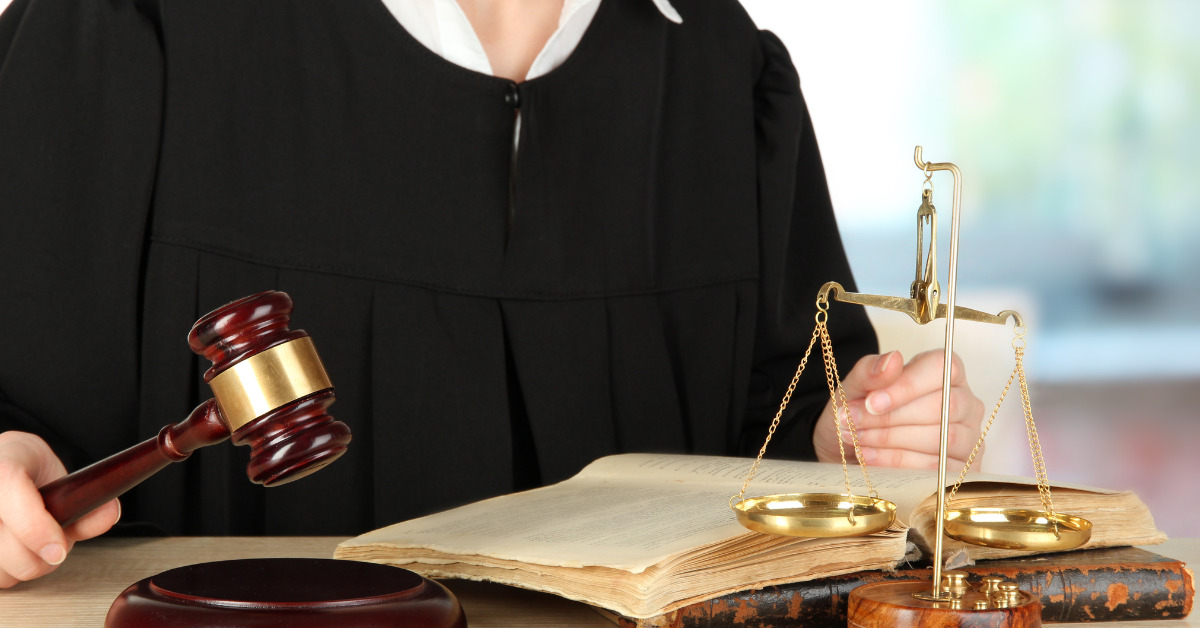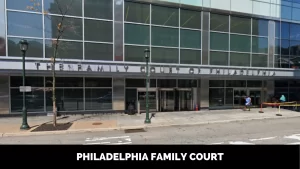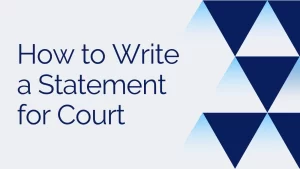What is a Dispositional Hearing in Family Court?
A dispositional hearing, also known as a sentencing or adjudication hearing, is a critical stage in juvenile court proceedings. It is the hearing where the judge determines what will happen to a juvenile who has been found guilty in a delinquency case. This hearing follows the adjudicatory hearing, where the court determined the juvenile’s guilt.
The dispositional hearing is the juvenile equivalent of a sentencing hearing in criminal court for adults. The judge will decide on the appropriate consequences, rehabilitation plan, and placement for the juvenile offender.
Purpose of the Dispositional Hearing
The main purposes of the dispositional hearing are:
To Determine Sentencing and Rehabilitation Plan
The judge will determine the appropriate sentence and rehabilitation plan based on the juvenile’s circumstances. This includes deciding whether to place the juvenile on probation in the community, or committing them to a juvenile detention facility.
The goal is balancing accountability with providing care, protection, and guidance to rehabilitate the juvenile. The judge has significant discretion in crafting a disposition order to meet the juvenile’s needs and the interests of justice and public safety.
Provide Due Process Rights to the Juvenile
The dispositional hearing provides due process rights to the juvenile offender. They have the right to have their attorney present, present evidence, challenge the probation officer’s recommendations, and make a statement to the judge.
This allows the juvenile to actively participate in the process that will significantly impact their future.
Consider the Best Interests of the Child
The judge will aim to issue a disposition order that serves the juvenile’s best interests. This principle is unique to juvenile court compared to adult criminal court sentencing.
Factors like the juvenile’s age, maturity, family environment, and any disabilities are considered in determining the appropriate rehabilitation plan and placement. The goal is to get the juvenile on the right track while still holding them accountable.
When Does It Occur?
Each state has its own laws governing juvenile courts and proceedings. But generally the dispositional hearing occurs:
- After the adjudicatory hearing where guilt is determined
- Before any appeal process
- Within 30 days of the adjudicatory hearing in most states
The court may order a pre-disposition investigation report to help inform the judge’s decision. This is prepared by a probation officer or social worker after contacting all interested parties.
Who is Present?
Several key parties are present at the dispositional hearing:
The Judge
The judge oversees the hearing and will make the ultimate decision about sentencing and the rehabilitation plan. They aim to issue a disposition order serving the best interests of the juvenile and community.
The Juvenile
The juvenile offender who was found guilty at the adjudicatory hearing has the right to be present at the dispositional hearing. They are entitled to speak to the judge about desired outcomes.
Parents/Guardians
The juvenile’s parents or legal guardians will typically be present. They may also have the chance to address the judge and advocate for their desired disposition.
Attorney(s)
The juvenile’s defense attorney will be present to advocate for the juvenile’s interests. The prosecuting attorney representing the state may also attend.
Court Officers
Court officers like the bailiff and court clerk may be present to maintain order and record the proceedings.
Witnesses
Witnesses who can provide information relevant to sentencing can be called to testify. This may include family members, school officials, probation officers, therapists, and other professionals working with the juvenile.
Factors Considered by the Judge
The judge has significant discretion when deciding on an appropriate disposition order and rehabilitation plan. Key factors the judge will consider include:
Nature and Severity of Offense
More severe offenses often warrant stricter sentences and placement in secure facilities compared to minor first-time offenses. Judges weigh the seriousness of the juvenile’s actions.
Prior Record
First-time offenders generally receive more leniency than juveniles with an extensive prior record and history of repeating offenses. Prior convictions, adjudications, and failures on probation are considered.
Age and Maturity
Younger, less mature juveniles may be given more grace in sentencing compared to older teenagers. But maturity level and likelihood of rehabilitation are considered more than just age.
Interests of Justice and Public Safety
The judge weighs the need to rehabilitate the juvenile with protecting public safety and deterring future misconduct. More dangerous offenses require stricter disposition.
Family Environment
A chaotic home environment may warrant placement outside the home so the juvenile can thrive in a structured setting. But removing juveniles from families is generally seen as a last resort.
Mental Health/Disabilities
Mental health issues, developmental delays, trauma history and other disabilities can influence the appropriate rehabilitation plan and placement. Treatment needs are considered.
Attitude and Demeanor
Judges consider the juvenile’s attitude, acceptance of responsibility, remorse, and openness to rehabilitation. This impacts the perceived likelihood of success on probation or in treatment.
Probation Officer Recommendations
The judge heavily weighs the pre-disposition report and sentencing recommendations made by the probation officer or case worker assigned to the juvenile.
Input from Parents/Attorneys
The judge allows input from the juvenile’s parents, guardians, and attorneys to factor into the disposition order. Their perspectives are valued.
Common Disposition Options
Some of the most common disposition options the judge can order include:
Probation
Placing the juvenile on supervised probation in the community is one of the most common dispositions. This allows close monitoring and rehabilitation without fully removing the youth from their family.
Community Service
Performing community service hours like cleaning up parks or helping at nonprofits is a productive way for juveniles to repay their debts to society. It teaches responsibility.
Counseling/Treatment
Mandatory counseling, substance abuse treatment, anger management classes, and other therapeutic programs are often part of probation terms or facility placement.
Restitution
Requiring the juvenile to pay money to victims to cover losses teaches accountability. Wage garnishments can help ensure payment.
Out-of-Home Placement
Serious offenders may be placed outside the home in a group home or residential juvenile justice facility. These provide structure, supervision, and rehabilitation programming.
Juvenile Detention
Short-term sentences of a few weeks or months in juvenile hall or detention centers emphasize the seriousness of the offense. But judges try to avoid this option if possible.
Contesting the Disposition Order
Juveniles and their families have the right to contest and appeal the disposition order and sentencing if they disagree. The process includes:
- Filing a motion for reconsideration – This asks the judge to reconsider their decision by presenting new evidence or arguments. It must occur within a certain number of days.
- Requesting a new dispositional hearing – If the motion for reconsideration fails, the defense can request an entirely new hearing to re-examine the issues.
- Filing an appeal – The disposition can be formally appealed to a higher court. The attorneys handle the complex appeals process.
However, judges have significant discretion in crafting an appropriate disposition order. Successfully contesting it requires showing clear abuse of discretion or legal errors.
Waiting Periods for Sealed Records
Most juvenile records are sealed and become inaccessible to the public after a waiting period. Waiting periods after the case is closed typically range from 1-5 years.
Sealing protects juveniles from long-lasting stigma and gives them a fresh start. However, serious offenses like murder may not qualify for record sealing. Check local laws for details.
Conclusion
The dispositional hearing is a pivotal moment in juvenile court cases after guilt has been determined. The judge has wide discretion in sentencing juvenile offenders and developing personalized rehabilitation plans suited to their needs and offenses. Their goal is serving justice while also providing care, guidance, and skills to put the juvenile on a better path. This highlights the rehabilitative focus of juvenile courts compared to criminal courts. With proper support and accountability, most juveniles can get back on the right track after facing consequences.
FAQs
What is the burden of proof at a dispositional hearing?
The burden of proof is lower at dispositional hearings than the standard of “beyond a reasonable doubt” used at adjudicatory hearings. Judges can consider relevant evidence like hearsay and reports to determine an appropriate disposition, using the “preponderance of evidence” standard.
Can a dispositional hearing be postponed or continued?
Yes, judges can grant postponements or continuances of dispositional hearings if there is good cause. This gives time for things like obtaining evidence, having witnesses appear, or allowing the defense adequate time to prepare. But the hearing cannot be delayed indefinitely.
Can juveniles participate in dispositional hearings?
Yes, juveniles have the right to be present and speak at their dispositional hearing. The judge will allow the juvenile to make a statement, express remorse, highlight mitigating factors, and participate in the process to the extent they desire.
Who pays for the costs of mandated counseling, treatment or placement at a dispositional hearing?
Parents or legal guardians of the juvenile are generally responsible for paying court costs, fees for evaluations, restitution, and costs of mandated counseling, treatment, or placements from the disposition order. But waivers are possible for lower income families.
Can parents refuse the disposition order made by the judge?
Parents have limited ability to refuse the disposition order and sentences imposed on the juvenile after being found guilty. They can file appeals or motions for reconsideration. However, outright refusal to comply can result in contempt of court charges against the parents in some jurisdictions.







